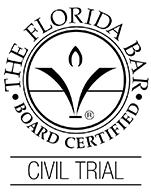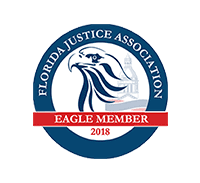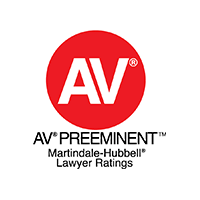A Proposal for Settlement commonly referred to as a “PFS,” can be filed by any party to a lawsuit and can be directed to some or all of the opposing parties in the case. The Proposal specifically identifies the monetary amount the filer is agreeable to for settling all claims and defenses. Acceptance of the Proposal is legally binding and provides a full release of all claims against the named Defendant(s) and results in a dismissal of the case as to those parties. The laws regarding Proposals for Settlement were created to encourage early resolution of injury cases by putting pressure on parties to settle lawsuits when a PFS is filed.
How does a Proposal for Settlement work?
Florida Statute § 768.79 (offer of judgment and demand for judgment) and Florida Rule of Civil Procedure 1.442 (proposals for settlement) provide the framework for filing proper Proposals for Settlement and offer the parties the possibility of winning payment of their attorneys’ fees and costs from the opposing party.
If a PFS is valid (meaning it was properly drafted, filed, and served in accordance with the law), it creates an opportunity for the filer to recover his or her attorneys’ fees incurred in prosecuting or defending the case if the opposing party does not accept the Proposal within 30 days. This can serve as a useful bargaining chip at mediation or in other pre-trial negotiations.
How can I win attorneys’ fees and costs?
Let’s assume you have filed a Proposal for Settlement in the amount of $100,000, and the opposing party did not accept the Proposal within the 30 days allotted by Florida law. If your case goes to trial, you must receive a judgment of at least 125% of the proposal amount to qualify for payment of your attorneys’ fees and costs by the opposing party. In this scenario, that would require a minimum judgment of $125,000.
What if the opposing party files a Proposal for Settlement against me?
Now let’s assume the opposing party has filed a Proposal for Settlement against you in the amount of $100,000, and you did not accept the Proposal within the 30 days allotted by Florida law. If your case goes to trial, you must receive a judgment of at least 75% of the Proposal, or you may be responsible for the other party’s attorneys’ fees and costs. In this scenario, that would require a minimum judgment of $75,000.
When can a Proposal for Settlement be filed?
A Plaintiff must wait a minimum of 90 days after a Defendant is served with a lawsuit before the Plaintiff can file a Proposal for Settlement against the Defendant.
The Defendant can file a Proposal for Settlement against the Plaintiff 90 days after the lawsuit was filed with the Court.
The deadline for filing Proposals for Settlements for all parties is 45 days before the first day of the trial docket.
The recipient must accept a Proposal for Settlement within 30 days of the date of the offer, or it is deemed rejected.
How do I know if a Proposal for Settlement is valid?
The PFS must contain:
- A statement that it is being made pursuant to Rule 1.442 and Florida. Statute §768.79;
- The name(s) the party or parties making the Proposal and the name(s) of the party or parties to whom the offer is being made;
- The claims the offer is seeking to resolve either by stating that it is intended to settle all claims or by specifying the claims by Count;
- Any relevant conditions, with particularity;
- The amount proposed to settle a claim for punitive damages, or that punitive damages are not part of the legal claim;
- Whether the offer includes the amount of attorney’s fees that might be awarded to the offeree and whether attorney’s fees are part of the offeree’s legal claim;
Additionally, the Proposal for Settlement must be served in the same manner as any other pleading in the case and must include a certificate of service indicating the date of service.
Florida courts have routinely found justification for not upholding Proposals for Settlement. There is a tremendous amount of case law on this topic. Ironically, Proposals for Settlement were initially created to limit litigation, but in some ways that have had the opposite effect.
If you have more questions about proposals for settlements, contact the attorneys at Dismuke Law, PLLC for more information. Call (863) 292-6922″>(863) 292-6922 today!
Author:



![cftla-member[2]](https://www.1800askdave.com/wp-content/uploads/2022/03/cftla-member2.png)
![cftla-member[3]](https://www.1800askdave.com/wp-content/uploads/2022/03/cftla-member3.png)










